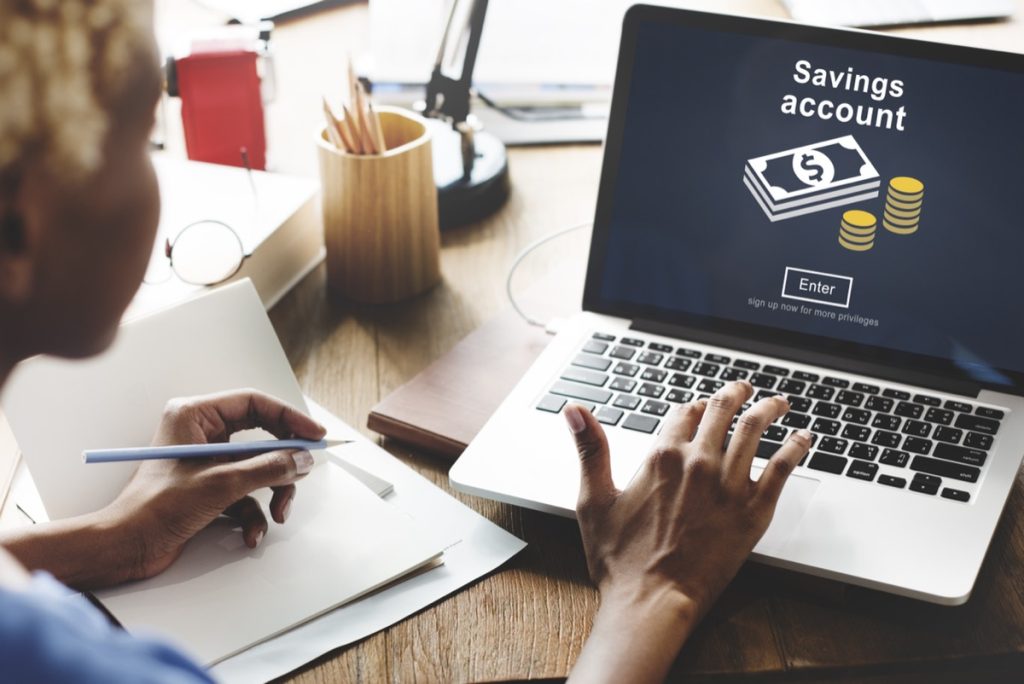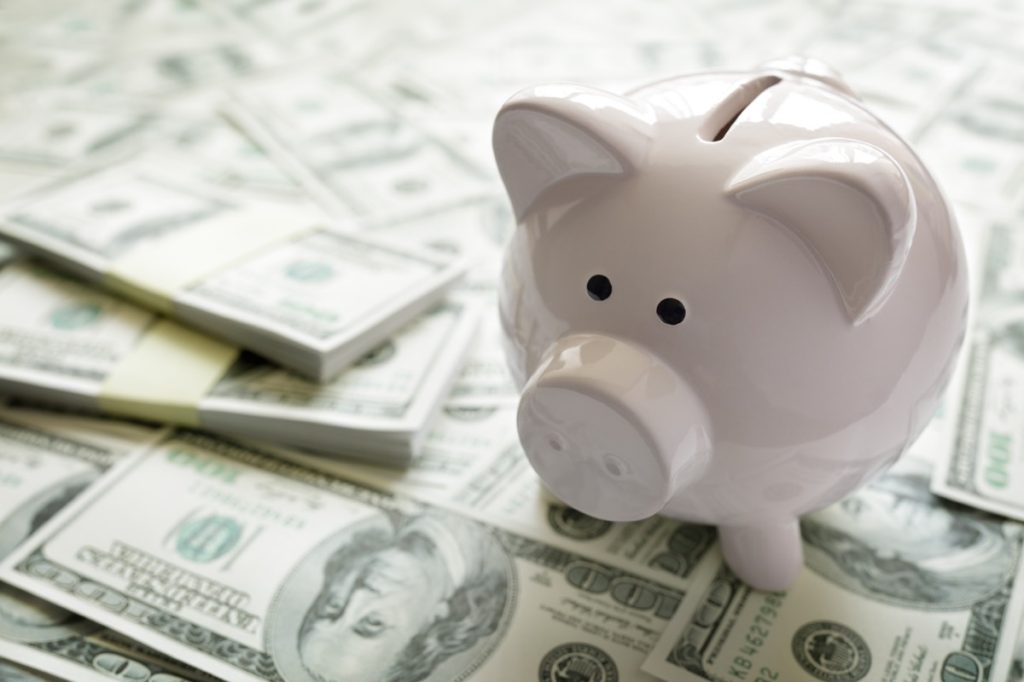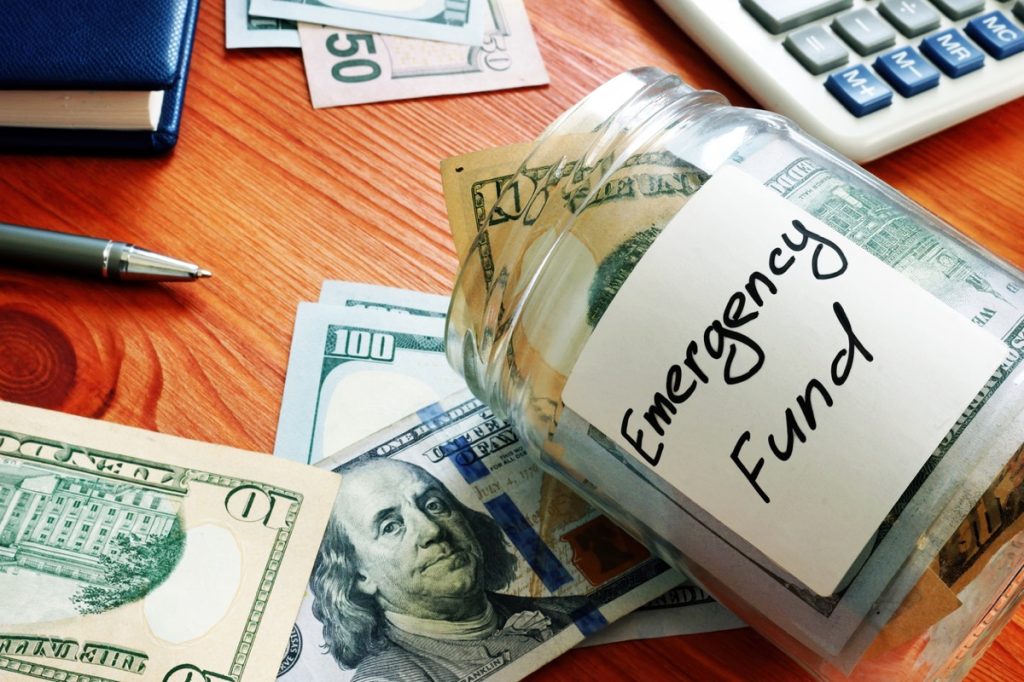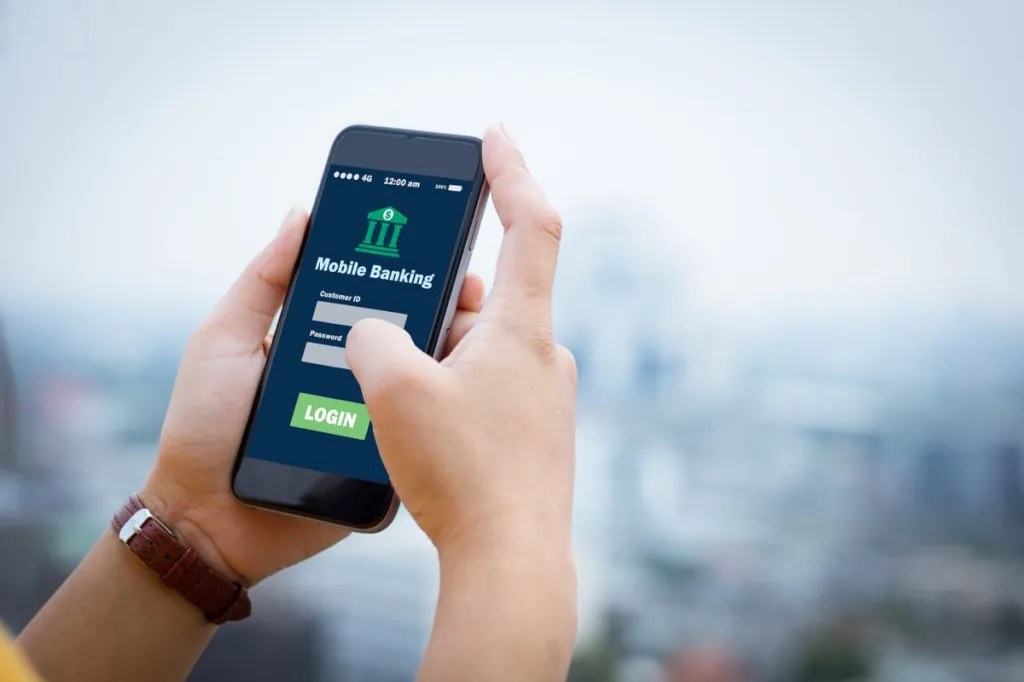10 Reasons You Should Switch to a High-Interest Savings Account

Depending on your individual needs, putting your funds into a high-interest savings account can be an appealing option. After all, doing so can help you save towards the major expenses you’re already stashing funds away for, such as sending the kids off to college or putting money down on a new home. And even in shorter-term situations, experts say these accounts have their advantages.
RELATED: Never Use Your Credit Card for These 6 Purchases, According to Financial Experts.
“I am a huge fan of high-interest savings accounts! They can be such a good alternative to your standard savings account—or stuffing cash under the mattress,” says Trae Bodge, a smart shopping expert at TrueTrae.com. “However, they’re not all created equal and may not always be the very best place for your funds.”
How do you know it’s time to set yourself up with a new account? Read on to discover the reasons you should switch to a high-interest savings account, according to personal finance experts.
1. You already have the minimum amount on hand to reap the benefits.

Most people open a high-interest savings account in the hopes of watching their balance grow faster over time, thanks to the special rate. Having a solid foundation to start will help you see the benefits right away.
“When switching to a high-interest savings account, maintaining the required balance to receive the high interest rate may be challenging for some,” Annette Harris, founder of Harris Financial Coaching, tells Best Life. “For example, the account may require that you maintain a balance of $25,000 to receive the high interest rate. If you drop below that balance, your interest rate will, too.”
This can also create a challenge if you hope to get to the next tier interest rate. “It may require a substantial deposit to receive an additional percentage point or two. Because of this, it’s important to consider if other savings or investment options would be more beneficial,” she says.
2. It could be one of the safest investments you can make with your cash.

Any financial decision comes with potential risks and rewards, making it difficult to assess what’s best for you. However, experts say that high-interest savings accounts provide one of the relatively safest ways to park cash.
“Moving your savings into a higher-yielding online savings account is the only free lunch in finance,” says Greg McBride, chief financial analyst at Bankrate.com. “You get additional return and don’t have to take risk to get it.”
In many instances, you’ll see many of the same benefits of a traditional savings account—only better. “Your money is protected by federal deposit insurance [FDIC], the account can be linked to your current bank for easy transfers back and forth, and the best yields are in the 4.5 to 5 percent neighborhood, compared to the average savings account that pays 0.23 percent,” McBride explains.
According to Cheri Read, a financial expert with MarketWatch Guides, using a high-yield savings account can make a big difference for your finances in the long run. “You can earn about $2,600 more over five years by having $10,000 in a high-yield savings account compared to a traditional one,” she tells Best Life. “Additionally, they often don’t have monthly maintenance fees or minimum balance requirements.”
RELATED: 4 Warnings About Using TurboTax, According to Experts.
3. You don’t anticipate having to withdraw your savings very often.

Ideally, any money going into your new savings account won’t need to be accessed unless it’s a dire situation or you’re paying towards an ultimate goal such as retirement. That’s because depending on the terms of your arrangement, pulling from a high-interest account can come with costly penalties.
“Check any withdrawal conditions attached to the account,” says Alex King, certified public accountant and founder of Generation Money. “You’ll often get penalized for withdrawing cash frequently from high-yield savings accounts, potentially even losing the interest earned.”
4. You have a specific goal in mind.

No matter what phase of life you’re in, there’s a decent chance there’s at least one milestone expense on your horizon. Experts say that by their very nature, some savings account options can help you achieve your goals even faster.
“High-interest savings accounts are usually very beneficial for specific goals—particularly for individuals struggling to stick to a budget due to financial trauma,” says Alejandra Rojas, founder of The Money Mindset Hub. “Using one for vacations or saving for annual or estimated quarterly taxes, especially for entrepreneurs, can be advantageous.”
She adds that before moving your money over, it’s important to sit down and define your goal. That way, you can determine how you want to interact with your money and assess your comfort level with taking financial risks.
“If your goal extends beyond six months, you prefer to leave your savings untouched, and you’re averse to investment risks, then a high-interest savings account is the better option,” she says.
RELATED: 10 Things You Should Stop Buying When You Retire, Finance Experts Say.
5. You need a safe place to store your emergency funds.

Even when saving for the future, the reality is that sometimes things don’t go as planned. But there can be a benefit to parking your cash in some types of accounts over others.
“A high-yield savings account can be ideal for establishing an emergency fund that earns interest,” says Read. “You’ll need immediate access to your money if something sudden happens, like a medical emergency. But if you’re fortunate enough not to need it for a while, it will be accruing interest until you do.”
6. You don’t feel like chasing interest rates.

Part of getting the most out of your investments is regularly checking that you’re getting the best returns possible. But if you’re trying to avoid a lot of short-term moves with your money, maintaining a high-interest savings account with an institution you trust can be a way to streamline your finances.
“If your balance is low, you won’t make all that much switching from three percent interest to four percent interest at a different bank,” says Scott Lieberman, founder of personal finance website Touchdown Money. “If your balance is $1,000, you’re leaving $10 on the table by not switching banks. Is $10 a year really worth the headache of getting to know a new bank and understanding its processes? For most people, it isn’t.”
Ultimately, Lieberman adds that unless you know you’ll invest a healthy amount or your interest rate is terribly low, you can pick a good interest rate and just stick with it.
7. You’ve found an institution you can trust.

Shopping around for a great interest rate has gotten easier thanks to the internet and increased access to institutions that may not even have brick-and-mortar branches.
“Most high-yield savings accounts that offer the best rates are from banks and credit unions that operate exclusively online,” says Read. “Online banks do not have the overhead costs associated with branches and their staff.”
However, this can also create a slightly higher risk: Some experts caution that some offers might be too good to be true.
“The most attractive deposit rate may come from a bank that is not as well known as the major institutions,” says Jeffrey Stouffer, a personal finance expert with JustAnswer. “Or if it’s from a major institution, it may indicate some internal problems that an influx of cash can solve.”
He says that while the FDIC guarantee banner can provide comfort to the depositor, what is often not known is what can happen to a deposit account from a bank that the government took over after a failure. “It will be returned or transferred to another bank,” he explains. “This will not work well if this was an emergency fund and an immediate has arisen.”
That’s why he says just like any investment opportunity, it’s essential to make sure that the bank offering the most attractive deposit at the moment has a strong foundation. “There have been too many recent examples of banks failing in the current interest rate environment,” he adds.
RELATED: The 20 Most Affordable U.S. Cities for Retirees, New Research Shows.
8. You won’t need to be able to access your cash quickly.

Savings accounts can be a helpful resource when a sudden emergency or unexpected necessary expense calls for more money than your budget can handle. That’s why some experts warn high-interest account holders might not always be able to get their money as quickly as needed.
“It can sometimes be a little more time-consuming to access your cash,” says Robert Farrington, founder and CEO of The College Investor. “And since many of these banks are online, you’ll have to transfer your funds to another bank to access it as hard currency in some cases.”
However, this still doesn’t necessarily make them the worst investment option—especially if you have part of your emergency fund elsewhere. “Despite potential penalties on your withdrawals, it’s still relatively easy to access your money compared to investments tied up in property or other illiquid assets,” says King.
9. You’re new to figuring out where to park your money—or you’re recovering from a financial mishap.

Even if you’re familiar with investing, it can be intimidating and fast-paced. But for those who are just accumulating enough funds to save or rebounding from a set of losses, a safer investment like a high-yield account might be one of the better options for the immediate future.
“From a financial trauma perspective, a high-interest savings account provides a good first step for those looking to change their financial habits but are still apprehensive about investing,” says Rojas. “Since it’s a new product, it requires stepping out of one’s financial comfort zone.”
10. You’re comfortable getting less reward in exchange for less risk.

No matter your financial situation, high-interest savings accounts provide a relatively risk-free way to make money on the cash you’ve got on hand. But if you’re in a position to think long-term, there’s a chance you might get more out of your money by being strategic with at least some of the funds.
“You could get a higher return on your money by investing instead, although this comes with greater risk,” says King. “With rates rising, though, the return on high-interest savings accounts is becoming more competitive compared to stock market returns.”
Best Life offers the most up-to-date financial information from top experts and the latest news and research, but our content is not meant to be a substitute for professional guidance. When it comes to the money you’re spending, saving, or investing, always consult your financial advisor directly.
This story has been updated to include additional entries, fact-checking, and copy-editing.